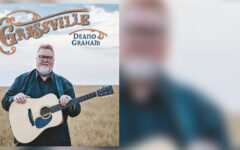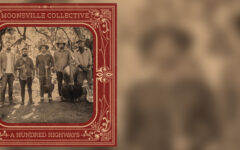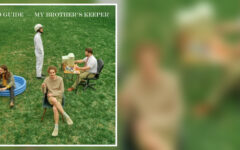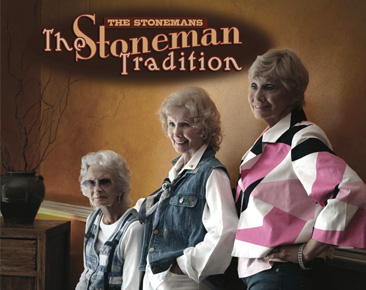
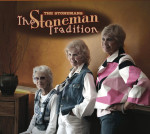 The Carter Family has arguably the best known family music legacy in traditional music, with such artists as Lorrie Carter Bennett (Maybelle’s granddaughter, who is a part of the recent Daughters of Bluegrass compilation) carrying on their time-honored songs even today. However, another participant from the legendary 1927 Bristol Sessions also has family members who make sure their songs and sounds are not forgotten. The Stonemans, three daughters of early country music star Ernest “Pop” Stoneman, have recently released The Stoneman Tradition, a collection of songs representative of their family’s many years in the music business.
The Carter Family has arguably the best known family music legacy in traditional music, with such artists as Lorrie Carter Bennett (Maybelle’s granddaughter, who is a part of the recent Daughters of Bluegrass compilation) carrying on their time-honored songs even today. However, another participant from the legendary 1927 Bristol Sessions also has family members who make sure their songs and sounds are not forgotten. The Stonemans, three daughters of early country music star Ernest “Pop” Stoneman, have recently released The Stoneman Tradition, a collection of songs representative of their family’s many years in the music business.
Patsy, Donna, and Roni Stoneman have performed music their whole lives – sometimes as part of their large family, and sometimes on their own (fans may remember Roni from her time on Hee Haw). Now, in their 70’s and 80’s, these sisters are reflecting on the music their father had a hand in establishing. This fourteen track collection features eight songs which were previously recorded by their father, as well as songs recorded by their brother, fiddler Scotty Stoneman, and a few originals.
Most of the songs have an old-time feel, aided by Patsy’s autoharp. On the Banks of the Wabash, Far Away, which was one of the best-selling songs of the late 19th century, is a melancholy-sounding tune about missing home and the loss of loved ones. The Raging Sea, How It Roared has a pleasant melody and cheerful vocals that nicely update this historic Child ballad. The sisters also cover the traditional standard Bury Me Beneath the Weeping Willow Tree. While this tune has been recorded by a number of bluegrass artists, the autoharp in this tune is a nice addition which brings back the song’s roots. The family tradition is brought full circle on the final track, Where the Soul of Man Never Dies, which features an intro taken from their father’s recording of the song.
Several of the songs lean more towards traditional bluegrass, including their version of their brother’s song Going Home. This is a nice mid-tempo piece which hits on the traditional bluegrass theme of the joy in returning home. Roni’s composition Good, Good Girl is a sassy, country-influenced song in the vein of Loretta Lynn which shares the story of a woman who decides that going out and having a good time is more fun (and better revenge) than being a good girl.
Patsy, Roni, and Donna share vocal duties on the album, and all three contribute instrumentally as well: Patsy on autoharp, Donna on mandolin, and Roni on banjo. They are joined by Nate Grower (fiddle), Jeremy Stephens (guitar), and Stu Geisbert (guitar). While many of the arrangements here are somewhat stripped-down, the musicians get to show off a bit on the album’s instrumentals, including two contributions from Donna. Donna-mite is a bluesy mandolin-fest inspired by Bill Monroe’s Bluegrass Stomp, while Tribe’s Tune is a bit livelier.
While The Stoneman Tradition is not necessarily a bluegrass album, The Stonemans have created a collection which will introduce modern listeners to numerous songs which may have been forgotten otherwise. The music here isn’t what you’ll normally hear on the radio, but is an important part of tradition nonetheless.
For more information on The Stoneman Tradition, visit the Patuxent Records website at www.pxrec.com. The album is available from various online music retailers.

